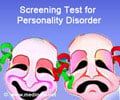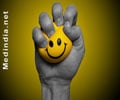The Adult Attention Deficit Hyperactivity Disorder (ADHD) screening calculator is designed as the first step in identifying the symptoms and signs of ADHD and encourages you to consult a psychiatrist.
Four or more check marks in the grey area indicate that your symptoms are consistent with those of Adult ADHD.
Several adults suffer from ADHD but its symptoms are often mistaken for those of stress. ADHD symptoms in adults have a negative impact on overall well-being of an affected person besides gravely affecting career and personal relationships. Read more to understand the condition better.
Advertisement
What is ADHD
ADHD stands for
Attention-deficit/ hyperactivity disorder. It is a developmental disorder characterized by persistent symptoms of inattention and/ or hyperactivity and impulsiveness (doing an act without any thought) that interfere with functioning or development.
ADHD is a chronic and debilitating condition and is known to affect the individual in many aspects such as school, work, and personal relationships. It affects mostly during childhood and it may persist during adulthood also.
What is the estimated prevalence of ADHD among Adults?
A study in 2020 estimated that the prevalence of persistent adult ADHD was 2.58% and that of symptomatic adult ADHD was 6.76%. This means the affected adults were 139.84 million and 366.33 million globally (
1✔).
What is the estimated prevalence of ADHD among Children and Adolescents?
An estimated 8.4% of children have ADHD. Boys (15%) are more commonly diagnosed with ADHD than girls (8%). This does not justify that boys are more prone to ADHD because of different symptoms among boys and girls.
Boys show symptoms of hyperactivity and other symptoms but girls with ADHD show inactivity (
2✔).
What is the Difference Between ADD and ADHD?
ADD or attention-deficit disorder is an old term used to describe ADHD. It was referred to as ADD till 1987 when the term hyperactive was added.
Still, some use ADD to describe ADHD out of habit or familiarity. It is also used to describe inattentive ADHD without hyperactivity. It is best to use the term ADHD even if the person doesn’t show any hyperactivity symptoms (
3✔).
Does ADHD in Adults get better with age?
The occurrence of both persistent and symptomatic
ADHD in adults decreases as they get older (
4✔). What are the tools available to evaluate adult ADHD?Diagnosing ADHD is difficult because the symptoms of adult ADHD are different from those seen in children. There are no medical tests available to diagnose ADHD.
It is evaluated by a behavioral rating scale to assess the symptoms and which part of life the symptoms affect. In most cases, the Diagnostic and Statistical Manual of Mental Disorders, Fifth Edition (DSM-5) is used to assess the symptoms.
What are the DSM-5 Criteria for ADHD?
The main three types of ADHD are (
5✔)
- Predominantly - inattentive type
- Predominantly - hyperactive type
- Combined type
Inattentive Type ADHD
An adult may be diagnosed with predominantly inattentive ADHD if five or more inattentive symptoms persist for at least six months and must show less than five symptoms of hyperactivity or impulsivity.
DSM-5 symptoms of inattentive ADHD are (
6✔)
- Losing or misplacing important items
- Often distracted by unrelated thoughts
- Often forgetting to complete daily activities
- Short attention span and difficulty remaining focused
- Poor listening skills and inability to pay attention when spoken in person
- Unable to finish tasks or follow instructions
- Avoiding work that requires sustained attention and mental focus
- Unable to pay close attention to details, resulting in careless mistakes
- Difficulty organizing tasks, time, or workspace
Impulsive/ Hyperactive Type ADHD
An ADHD presentation that is predominantly hyperactive/impulsivity can be diagnosed if five or more symptoms are present for at least 6 months and they must show less than five symptoms of the inattentive type.
The symptoms of hyperactivity in ADHD adults based on DSM-5 are
- Fidgeting with hands and feet, being unable to sit still
- Leaving their seat unexpectedly, for example, during meetings
- Often feeling restless
- Unable to take part in leisure activities quietly
- Perceived as restless, hard to keep up with, or “always on the go”
- Tendency to talk excessively
Symptoms of impulsivity are as follows:
- Blurting out answers before a question or sentence is complete
- Difficulty waiting their turn
- Interrupting or intruding on what other people are doing
Combined Type ADHD
Combined type ADHD may be diagnosed if symptoms of both inattentive and hyperactive/impulsive ADHD are present.
According to the DSM-5 criteria, to be diagnosed with combined-type ADHD, five or more symptoms of inattention for at least 6 months
Five or more symptoms of hyperactivity/impulsivity for at least 6 months (
7✔)
To be diagnosed with ADHD the following criteria must also be assessed along with the symptoms of different types
- Symptoms interfere with your performance at work or school
- Symptoms are present in two or more settings, such as at work, school, or home
- Other mental health disorders, such as anxiety or depression, cannot better explain your symptoms
- Some symptoms were present before the age of 12
Severity of ADHD
DSM-5 classified ADHD based on its severity as
Mild
: Few more symptoms are present than needed for diagnosis and it causes minor disruption to social or occupational working.
Moderate
: Symptoms or functional impairment are present between mild and severe type.
Severe
: Symptoms exceed the diagnostic threshold or they are intense in nature with significant interfernece with social or occupational functioning (
8✔).
Myths vs Facts about ADHD
1) Myth: ADHD is not a real condition Fact : ADHD is a real medical condition that can be hereditary and there are differences in brain development in persons with ADHD than persons without it (
9✔).
2) Myth: ADHD is the result of bad parenting. Fact: ADHD is caused due to differences in brain development. But some assume that kids not listening, and being impulsive a lack of discipline. These are signs of a medical condition and not a result of bad parenting.
3) Myth: ADHD people can not ever focus Fact: ADHD individuals indeed find it difficult to concentrate on things that are boring or repetitive. But if they work on something that they like they tend to focus more intensely which is called hyperfocus (
10✔).
4) Myth: ADHD is a learning disability Fact: children with ADHD tend to have difficulties in school, so it is easy to understand why people consider it a learning disability. A learning disability is a difficulty in specific academic skills like reading, and writing.However ADHD affects mental abilities like difficulty in organizing and focusing on details.
5) Myth: ADHD is a childhood problem that goes away Fact: Most ADHD is diagnosed during childhood, and the symptoms tend to change with time. Some learn to manage the symptoms so they become less noticeable but ADHD never disappears (
11✔).
FAQs
1. How does an untreated ADHD adult appear?
Adults with untreated ADHD have low emotional control and overreact when frustrated. They suffer from boredom due to constant procrastination. Other symptoms are low self-esteem, poor organizational skills, difficulty maintaining relationships, and anger issues that can affect personal and professional life (12✔).
2. Is ADHD a heritable condition?
Yes, ADHD is a heritable condition where 10 to 35 % of children diagnosed with ADHD have either parents who have ADHD or a close relative having ADHD condition. (13✔).
3. Is it necessary to have ADHD as a child to have it in adulthood?
Diagnosis of ADHD during childhood is not necessary to have it in adulthood. However a formal diagnosis, some symptoms of inattention or hyperactivity/impulsivity must be present before the age of 12 (15✔).
4. Do ADHD patients have comorbid psychiatric conditions?
The most common comorbid psychiatric condition that occurs along with ADHD are depression, anxiety disorder, bipolar disorder, and substance abuse disorder (16✔).
5. Can traumatic brain injury cause similar symptoms to ADHD?
Yes, traumatic brain injury patients can sometimes present ADHD-like symptoms such as difficulty with attention, activity, and impulsivity. They even respond to stimulants which are commonly used to manage ADHD (17✔).
Recommended Readings on ADHD Screening
Explore what causes teen stress and discover practical tips to overcome it. Gain insights and use tools to help teens manage and reduce stress
Dyspraxia is a developmental disorder characterized by difficulty in controlling the muscles, leading to impairment of motor skills, memory and cognition.
Are you uncomfortable in close relationships? Are you anxious, intense, or demanding and need to know why? You may be suffering from a personality disorder. Use our test to screen for symptoms.
The World Health Organization reports that depression is one of the main causes of disability affecting about 121 million people worldwide. More tragically, it claims around 850,000 lives every year. Hence, it is important that we understand this ...
Interactive section of Medindia provides information about chemistry of Brain depression
It is a myth that the brain quits generating new cells once you reach adulthood. They are regenerating all the time.
Attention Deficit Hyperactivity Disorder (ADHD) is a neurobiological disorder that affects normal behavior and impairs the ability to concentrate.
Today most of us are under stressful situations which is hard to avoid.Explore our simple and inexpensive stress relief tips.
Depression can be a severe mental health problem that can lead to other health issues. Find top foods that can help fight depression.
Being inattentive may not be a sign of disobedience, but may be a symptom of ADHD. Read more to understand why your child is unusually fidgety.
Online Depression Screening Test tells if you have mild or chronic depression based on your depression symptoms. Learn how to deal with depression by using this self-assessment calculator.
Are you anxious to know your anxiety level? Use Medindia's Anxiety Screening Test, a simple online screening test for anxiety symptoms.
Is your child inattentive, careless and hyperactive or exhibiting behavioral problems? Test your child for ADHD symptoms using this ADHD Test Calculator and find out if your child needs the help of a specialist.













